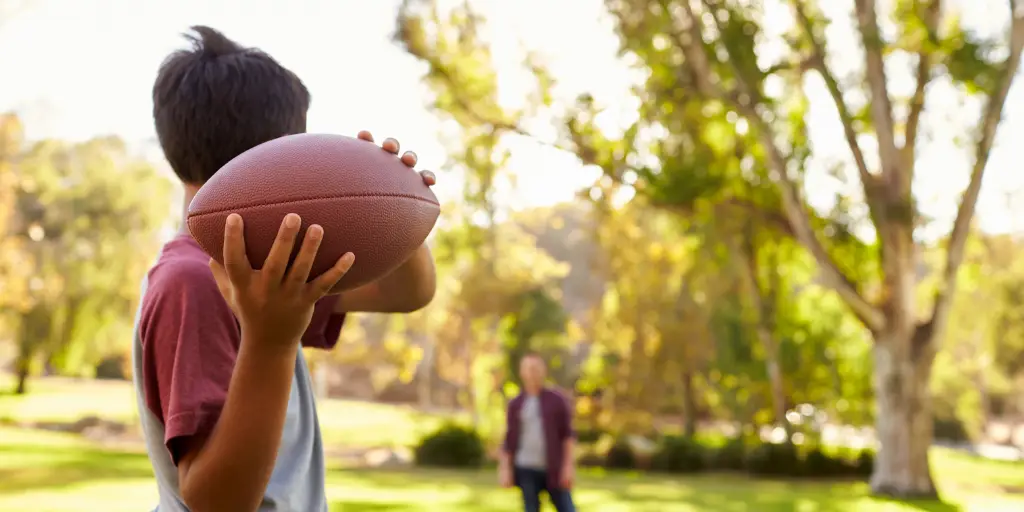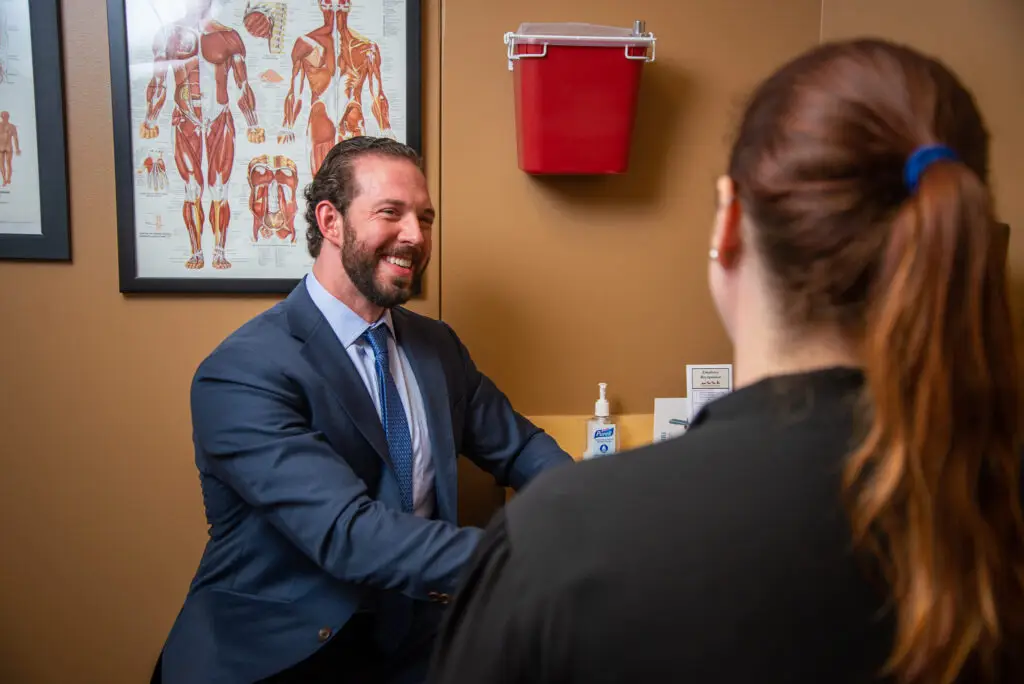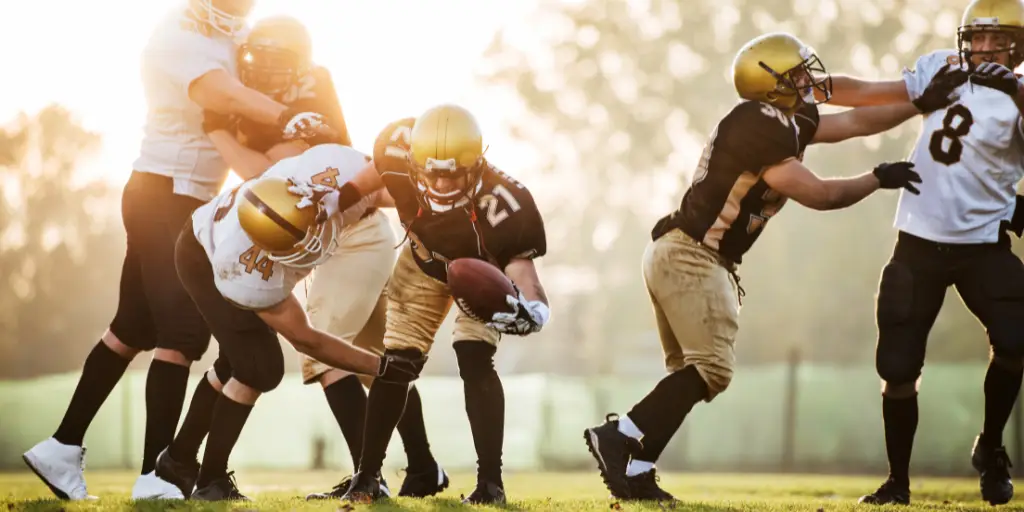During the second half of Game 2 of the 2024 NFL season, the star quarterback of the Miami Dolphins, Tua Tagovailoa did what he often does when he is unable to find an open receiver. He ran for it. What happened next shocked everyone – in the stadium and watching on TV. The young quarterback remained on the ground, dazed and unable to get up.
According to the official website of the NFL, “Tagovailoa suffered a concussion while running for a first down and colliding with Bills safety Damar Hamlin in Miami’s loss to Buffalo. The impact left him dazed on the ground before he was helped off the field and instantly concerned the football world, as Tagovailoa has a history of concussions in his NFL career.”
As most fans of the NFL know all too well, this is not the first time this head injury has sidelined Tagovailoa.
NFL.com noted. “He missed a total of five games in 2022 because of two diagnosed concussions — including one which required a stretcher to remove him from the field in Cincinnati — and was shut down for the season after suffering his second concussion of the campaign in a Christmas Day game against the Green Bay Packers, missing Miami’s playoff game against the Buffalo Bills.”
The team placed Tagovailoa on the “injured reserve” list, which is consistent with the league’s concussion protocol, and he will not be allowed to play again until Week 8 of the season. Despite calls from current and former NFL players for the Miami QB to retire, Tagovailoa has said he is not leaving the league, at least for now.

For the millions of parents whose children play contact sports, this storyline is very disturbing.
Head injuries, resulting from sports accidents, are some of the most serious a human can experience. If they occur, caregivers should immediately seek medical examination. The neurosurgeons at Texas Back Institute are world class and available to help when you need it. Click here to set an appointment.
Why Concussions Are Dangerous
According to the non-profit organization, Concussion Foundation, there are short-term and long-term effects resulting from the trauma of concussions. In the short-term, paralysis and cognition difficulties can occur. However, as a person ages, the long-term effects can be even more devastating.
The foundation notes, “Chronic Traumatic Encephalopathy (CTE) is a degenerative brain disease found in athletes, military veterans, and others with a history of repetitive brain trauma. CTE is caused in part by repeated traumatic brain injuries, which include concussions and non-concussive impacts.
“In CTE, experts believe a structural protein in neurons called tau misfolds and malfunctions, causes adjacent proteins to misfold, and sets off a chain reaction where this malfunctioning tau slowly spreads throughout the brain, killing brain cells. Right now, CTE can only be definitively diagnosed by autopsy after death. CTE has been diagnosed in people who died as young as 17, but symptoms do not generally begin appearing until years after the onset of head impacts.”
The potential for life-threatening injuries resulting from concussions greatly concerns experts in brain injuries, such as Dr. Thomas Kosztowski, a neurosurgeon at Texas Back Institute.

Advice From an Expert on the Brain
“With contact sports such as football, concussions increase the risks of CTE,” Dr. Kosztowski said. “Over time, the effects of these traumas build up and they can have a significant impact on neurological function, as well as psychological well-being.
The most effective prevention of concussions involves avoiding situations where they might occur. However, many young and adult athletes feel strongly about playing these contact sports. This is where having proper equipment can help.
“In football, well-designed helmets are, of course, important and they do some good,” he said. “We also hear about new generations of helmets that protect the player even better from concussions. However, the researchers are still gathering the data from these studies.
“The only real way to avoid potential head injuries from contact sports is to avoid these sports. Of course, this is easier said than done, especially for athletes who have a passion for these sports.”
The Role of Coaches and Parents
Teaching safer playing techniques and better conditioning can help players avoid concussions. Dr. Kosztowski explains.
“As a football coach, teaching players safer tackling techniques can help reduce the incidence of concussions. As parents, teaching your kids to avoid contact whenever possible can help them avoid head injuries.
“I believe a lot of parents are trying to steer their kids away from these contact sports. However, if they insist on playing these sports, make sure they have the best, safest gear possible.”
Changing the Rules to Reduce Injuries
In many ways, the “product” of professional football and any other sport are the players on the field. Nobody understands this better than the leagues. In the case of the NFL, an aggressive approach to player safety and evolving concussion protocols are evidence of this concern. A good example of this concussion prevention approach is found in the new Hybrid Kickoff rule.
According to NFL.com, with the 2024 season “the NFL is looking to address two things with the new kickoff rules: reducing injury rates on kickoffs while also keeping a play alive that has provided some of the league’s most exciting moments but had become routine with kickers blasting the ball out of the end zone for touchbacks.
“The rules are designed to promote more kickoff returns. It is also designed to more closely resemble a play from scrimmage with players aligning closer together at the kick and movement being restricted until the ball is touched by the return team. This is meant to reduce both the space and speed between return units.”
Click here for a more detailed explanation of this Hybrid Kickoff rule.
While many fans haven’t yet warmed up to this new kickoff rule, there is a reasonable chance that it might reduce concussions and other injuries because tacklers and runners do not have enough time and yardage to lead to more violent collisions.
As a neurosurgeon who has seen and treated too many traumatic head injuries, Dr. Kosztowski will cheer for any rule changes that reduce this potential for concussions and other injuries!
If you’re concerned about unusually painful or chronic headaches there are many potential causes for this misery. However, to be sure it is not life-threatening, set an appointment with the specialists at Texas Back Institute


